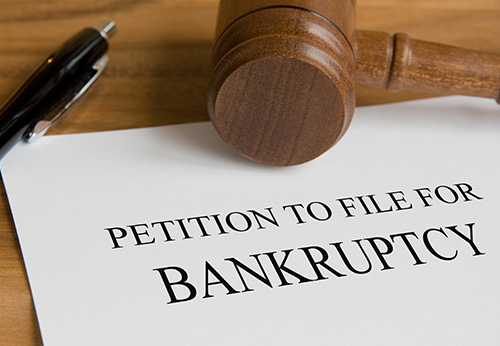 Chapter 11 bankruptcy is the most comprehensive form of bankruptcy, and anyone can file. A Chapter 11 can be filed by an individual, a corporation, or an LLC. It is a broad and varied chapter that can be used by just about anyone – even those who wouldn’t otherwise qualify for Chapter 7 or Chapter 13.
Chapter 11 bankruptcy is the most comprehensive form of bankruptcy, and anyone can file. A Chapter 11 can be filed by an individual, a corporation, or an LLC. It is a broad and varied chapter that can be used by just about anyone – even those who wouldn’t otherwise qualify for Chapter 7 or Chapter 13.
How Does A Debtor Get To Be Treated As A Small Business Debtor In A Chapter 11 Bankruptcy?
There are two kinds of small business debtors.
First, an older statutory provision allows a debtor to elect to be treated as a small business debtor under Chapter 11, but it is rarely used.
Second, a separate sub-chapter V of Chapter 11 allows for a small business election. Sub-chapter V can provide some incredible benefits to small business owners, such as maintaining their equity and ownership in their company while going through bankruptcy. This is not normal under Chapter 11 because of the “absolute priority rule” which typically requires a debtor pay the entire debt plus interest of any creditors with superior claims to the next class of creditors. With equity owners being the last class of creditors, a company in a typical Chapter 11 must pay all its creditors the full balance of their claims, plus interest, to enable the equity holders to maintain their ownership interest.
The list of creditors that are typically involved in Chapter 11 filings include:
- Secured creditors
- Unsecured creditors
- Any bondholders (if applicable)
- Any preferred stockholders (if applicable)
- Any common stockholders
With sub-chapter V, owners may be able to go through bankruptcy, clear out debt that is otherwise holding the company down, and still maintain their equity.
How Long Should I Expect A Chapter 11 Bankruptcy To Last?
The Chapter 11 timeframe will depend on whether you are filing as a small business debtor or under the normal Chapter 11 framework. Under subchapter V, there is a reasonably tight timeframe. Within 90 to 120 days of filing, you will be required to file your proposed plan.
The debtor is the only one that can provide a plan under sub-chapter V. If that plan gets approved, you can be through and out of bankruptcy in as little 150-180 days.
Under a regular Chapter 11, the bankruptcy could last 1 to 2 years or more, depending on the number of assets involved and the debts and creditors involved.
When Does The Debtor Receive A Discharge In A Chapter 11 Bankruptcy Case?
The discharge in Chapter 11 will depend a great deal on the plan and the type of bankruptcy you select.
Under a small business reorganization pursuant to subchapter V, if you file an unopposed or consensual plan, then the debtor receives a discharge upon the filing of the plan. If the plan is opposed or non-consensual, then the discharge will not be received until the completion of the plan, which may be between 3 or 5 years later.
If you’re in a regular Chapter 11, the discharge is almost exclusively determined by the plan’s terms. A plan is a contract negotiated between the debtor and the creditors. So, in a regular Chapter 11, the discharge occurs whenever that plan provides for that discharge.
Is The Public Informed Of A Chapter 11 Bankruptcy Filing?
Every bankruptcy filing is a public record, just like any other court filing in federal or state court. All those records are accessible to the general public and can be located in a publicly available database. But there is not going to be any advertisement. I am not aware of any publications that collect information about Chapter 11 filings and then publish information about those filings to the general public. But, if someone is looking for a bankruptcy filing, they can find that filing.
For more information on the Benefits Of Filing A Chapter 11 Bankruptcy, an initial consultation is your next best step. Get the information and legal answers you are seeking by calling (205) 506-3354 today.

Call Us Now For A Personalized Case Evaluation
(205) 506-3354

